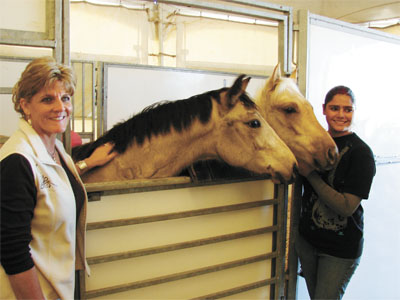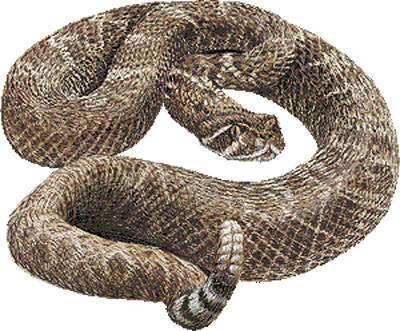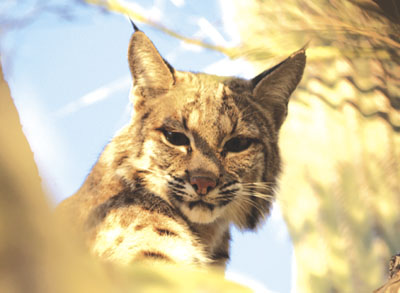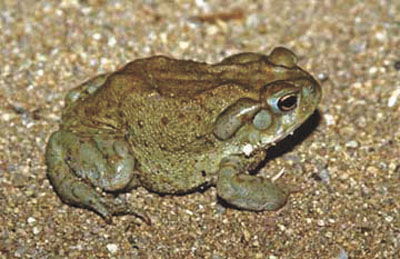AHS presents: “Pet’s Got Talent” Contest auditions
March 18, 2009
So your “Pet’s Got Talent” or “You Think Your Pet Can Dance” then show us your
“Animal Idol!”
 CAVE CREEK – Animal Health Services is presenting a pet talent contest and pet fair extravaganza. Pet owners in the valley are invited to bring their pets to audition for an upcoming “Pet’s Got Talent” Contest and Pet Fair. “Pet’s Got Talent” is not your average pet talent show and fair. It is a competition based program that requires participants to pass an audition in order to achieve maximum entertainment value.
CAVE CREEK – Animal Health Services is presenting a pet talent contest and pet fair extravaganza. Pet owners in the valley are invited to bring their pets to audition for an upcoming “Pet’s Got Talent” Contest and Pet Fair. “Pet’s Got Talent” is not your average pet talent show and fair. It is a competition based program that requires participants to pass an audition in order to achieve maximum entertainment value.
The auditions will take place at StageCoach Village following the Fiesta Days Parade on the west end. It will be on Saturday, April 4 from 12 to 3 p.m. There is a small donation fee of $5 per pet for each category that will go towards benefiting the local rescues involved in the “Pets Got Talent” event. Each category will receive first, second, third and participant prizes.
Competition categories include professional and amateur talents, agility, pets with people tricks, best groomed beauty contest, and a costume contest. The professional talent portion is reserved for pets that frequently compete professionally or are professionally trained pets. For pets that have been owner trained and are exceptional at basic talents, tricks & commands we have the amateur talent competition. Is your pet fast, agile, loves to jump, go through tunnels, shoot through chutes and weave between poles? Then the agility competition is the category for you! Do you and your pet love to interact with each other in an entertaining way? Join in the pets with people tricks. Also enjoy the best groomed pets in the beauty contest or dress-up your friends for a fun-filled costume contest.
Following the audition process, The “Pet’s Got Talent” Contest & Pet Fair event will then be held just 4 weeks later on Saturday, May 2 at StageCoach Village from 10 a.m. – 3 p.m. The event will feature the talent competitions & contests, pet-related vendors, and local rescues showing pets for adoption; concessions and much, much, more.
To become involved in the competition, just visit our website at www.ahsvet.com for audition applications and information regarding the contest venue, dates and schedule of events. Also, you may pick-up a form at Animal Health Services, 37555 N. Cave Creek Rd. Cave Creek. For questions or to request a faxed or mailed application, call and ask for Melanie at 480-488-6181.
This article is courtesy of Animal Health Services 37555 N.Cave Creek Rd. Phone: 480-488-6181.
Two Arizona colts chosen for Cavalia equestrian show
March 18, 2009
 SCOTTSDALE – Cavalia, the world renowned equestrian odyssey, hosted a contest recruiting colts, ages 6 to 18 months old, in the Arizona valley area. From over 50 applicants, nine finalists were announced in early January.
SCOTTSDALE – Cavalia, the world renowned equestrian odyssey, hosted a contest recruiting colts, ages 6 to 18 months old, in the Arizona valley area. From over 50 applicants, nine finalists were announced in early January.
Cavalia personnel then auditioned each of the finalists at their homes and the winners were announced on January 30. This is the first time since its inception Cavalia has featured local colts in the show.
Two-Eyed Tequila and AzSunkisst Scooter won the honors and chance for stardom in the Cavalia show and have been enjoying the celebrity life in the Cavalia stables in Scottsdale with the other stars since February 3, where they will stay until the show’s last performance on March 22.
Fifteen year old Jenna Galindo from Benson, Ariz. is the proud owner of “Tequi,” a 12 month old palomino Quarter Horse. She also owns and trained the six year old full brother to Tequi, Salt D Tequila. “Sonny” is currently winning consistently in barrel racing across the state.
“Scooter” is an 11-month-old buckskin Quarter Horse owned by Rhonda Dimmick from Desert Hills, Ariz.
Both colts were “human imprinted” at birth and as a result are very tame and trusting of people. The colts were weaned from their mothers in August and have lived together ever since. They are best buddies ... eating, sleeping and now playing together on the set of Cavalia.
Tequi and Scooter have been opening each performance of the show, which features 75 human and equine artists, by entering the stage with the freedom to “express themselves, discover their unique surroundings and play with toys – as every one-year old should,” according to the official Cavalia website. Cavalia artists then make their entrance and the colts greet them setting the stage for the rest of the show.
For tickets or more information about Cavalia visit www.cavalia.net or call 866-999-8111.
Photo: By Joanne Holmberg. Rhonda Dimmick (l.) with her buckskin colt, Scooter, and Jenna Galindo with her palamino Quarter Horse colt, Tequi, in the stables at Cavalia where the colts open each performance.
Safety reminders for Sonoran Desert pet owners
March 18, 2009
Courtesy of Foothills Animal Rescue
 Life in the Sonoran desert holds many pleasures, but it also presents some unique challenges for us and our pets. Local animal rescue organizations have dealt with and heard of many different situations involving pets. As a result of our experiences, we have compiled these important tips to help you and your pets live a happy life in the desert.
Life in the Sonoran desert holds many pleasures, but it also presents some unique challenges for us and our pets. Local animal rescue organizations have dealt with and heard of many different situations involving pets. As a result of our experiences, we have compiled these important tips to help you and your pets live a happy life in the desert.
PREDATORS – COYOTES, BOBCATS, OWLS, and HAWKS – can prey on domestic pets. Wild animals are protective of their young and will defend themselves if they feel threatened or provoked such as being chased by a dog. Keep your dog on a leash at all times. Contrary to popular belief, these attacks are not limited to the nighttime hours and are not limited to small pets. Keeping dogs in a fenced or walled area is desirable for this reason, although a small pet that is enclosed in a yard may still be vulnerable to predators who can fly. An outside kennel with a top and bottom connected to your house or garage with a doggie/cat door can provide a safe area for your pets. Cats are much safer indoors. Neutered pets are less likely to run away,  making themselves vulnerable.
making themselves vulnerable.
RATTLESNAKES can also pose problems to our domestic animals. If you or your pet spots a snake, don’t try to deal with it yourself. Keep pets far away from the snake. Rattlesnakes can lunge up to one half their body length. Install hardware cloth where you have gaps or openings in your fence and under gates to help keep snakes out. Residents served by Rural Metro may call them at (480) 945-6311 for snake removal. Snakes often end up in garages, so keeping the garage door shut may help keep them out. If you or your pet is bitten by a snake seek medical help immediately.
DEER TICKS are common here. Check pets periodically for dark-colored "pea-like" pests attached to your pet’s skin. Remove ticks with tweezers making sure to get entire body and head out. You may want to drop the ticks that you remove into alcohol—they are difficult to kill. Infested pets should be taken to the veterinarian to be tested for Tick Fever, a serious but usually treatable disease.
SCORPIONS and SPIDERS can sting or bite our pets indoors or outdoors. Contrary to common belief, some cats will get quite sick when stung by a scorpion. If your pet is suddenly vomiting, defecating uncontrollably, or acting strangely, seek medical attention.
SONORAN DESERT TOADS (aka Colorado River Toad) secrete from glands on their neck and limbs a viscous, milky-white venom that is painful and extremely toxic to our pets and humans. It can cause severe irritation to the eyes and nose, foaming at the mouth, paralysis, seizures, and even death. If you notice your dog, cat or young child mouthing or playing with these toads, or showing signs of staggering, or dilated eye pupils, carefully flush their mouth thoroughly with water and seek immediate medical care since heart irregularities often develop and can result in death less than 30 minutes after exposure. These toads are rather large with beady eyes and a flat broad head. The skin is leathery, sparsely covered with pale orange warts, and varies in color from a dark brown to an olive or grayish green. They also have round white warts at the corners of the mouth and large, granular glands covering the neck and limbs. Generally these toads are only seen during our rainy season in July and August.
August.
If at all possible, keep your pets from digging in the desert as VALLEY FEVER can be contracted from the spores in the soil. This often happens when the land has been cleared to build, digging for a new pool, or even doing a lot of landscape work and the pets play or dig in this area. It is best to keep them inside while this type of work is going on or at least restrict their access to these areas. Especially vulnerable to this common disease are pets with a compromised immune system. Valley Fever can usually be treated, but the medicine is costly.
If your pet is limping or whining especially after being out in the desert, check for CACTUS NEEDLES. Obviously, they are all over the desert floor. Carefully remove needles so they don’t break off at the skin line. Severe cases may require medical attention.
Successful SUMMER SURVIVAL may mean altering habits. Pets need lots of water and shade (or air-conditioning) when it's hot. Walk dogs in the early morning or evening when the temperatures are not as severe and the walking surface will not scorch paws. Also bring water on walks. People and pets can experience heat exhaustion! Never keep a pet (or child) in a closed car. Brain damage and/or death can occur quickly. Pets shed a lot in the summer here. Brushing frequently helps, but cats can still have problems with fur balls. In extreme cases, cats may need to have their fur trimmed. Consider installing a mist system in the pets’ outside area or keeping a tub of water pets can cool off in.
Please keep IDENTIFICATION TAGS or a microchip on your pets. Arizona law requires Rabies tags on dogs. If you lose your pet, don’t wait for someone to call you, your pet’s tag and collar may have come off. Go to the County Animal Control in Mesa or Phoenix and check to see if your pet has been picked up. You may need to check back because it may be a while before the pet shows up there.
We hope these tips will help you and your four-legged family members enjoy life in our beautiful desert.
Visit FoothillsAnimal Rescue.org to adopt an animal, volunteer, make a donation or learn more about Foothills Animal Rescue.


